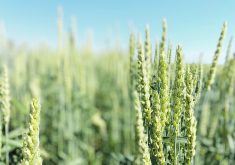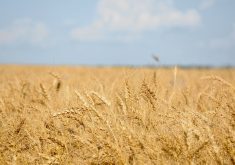BUENOS AIRES, Argentina — Argentine biotech firm Bioceres plans to expand sales of its genetically modified HB4 wheat seeds to dozens of seed companies to boost future sales of the drought-tolerant product, it said earlier this month.
The announcement to partner with additional seed multipliers, companies that sell seeds to farmers but do not develop new varieties themselves, marks an advance for the adoption of Bioceres’ proprietary HB4 wheat.
In 2020, Argentina became the first country in the world to approve the HB4 variety.
The South American agricultural powerhouse is a top global wheat exporter, although production for the 2022-23 harvest suffered a 50 percent drop in expected output compared to last season because of historic drought conditions last year and earlier this year.
Read Also

Using artificial intelligence in agriculture starts with the right data
Good data is critical as the agriculture sector increasingly adopts new AI technology to drive efficiency, sustainability and trust across all levels of the value chain.
While HB4 wheat has been distributed in Argentina via private deals between farmers and Bioceres, ramping up sales to farmers from the shelves of seed multiplier companies would likely boost the spread of the product.
The sales plan will include 45 seed multiplier firms, Bioceres chief executive officer Federico Trucco said in the company’s latest earnings report.
That translates to a significant expansion from last season when there were only three seed multiplier companies authorized to work with HB4 seeds.
Planting for Argentina’s 2023-24 wheat season will begin in the next few weeks.
In March, Bioceres got the green light from Brazilian officials to market its HB4 wheat. The company has also developed a soybean variety of HB4 brand, which previously gained approval in Brazil.
“Our soybean program in Brazil is advancing steadily with an initial set of varieties tested by farmers in five states, with at least one variety consistently outperforming leading commercial alternatives,” said Trucco.
Bioceres said it also seeks to increase the area planted with HB4 soybeans in Brazil to about 25,000 acres in the 2023-24 season, the report added.















